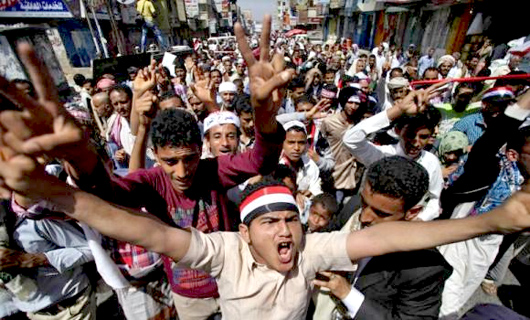Riyadh, Feb 14: Saudi Arabia, Italy and Germany shut down their embassies in Yemen on Friday amid growing political uncertainty as Yemen’s top UN envoy warned that the Arab world's poorest nation is at a crossroads between civil war and disintegration.

“Due to the deteriorating security and political situation in the Yemeni capital, the Saudi government has suspended all embassy operations in Sanaa and evacuated all its staff, who have arrived safely in the Kingdom,” said the SPA.
The Italian Foreign Ministry said in a statement the ambassador and his staff were returning to Italy, and expressed hopes that UN mediation would create conditions permitting the embassy to reopen.
“The situation is anything but stable,” said German Foreign Ministry spokeswoman Sawsan Chebli, calling the ouster of the government by the Shiite militiamen “unacceptable, dangerous and with consequences for the region”.
Gulf countries evacuated their embassies weeks ago.
The Saudi Embassy was also closed down for a short period in 2012 after Abdullah Al-Khaledi, a Saudi diplomat, was kidnapped on March 18, 2012. UN negotiations, headed by envoy Jamal Benomar, to resolve the deadlock have stalled.
“Today Yemen is at a crossroads,” Benomar told a UN Security Council briefing Thursday. “Either the country will descend into civil war and disintegration, or the country will find a way to put the transition back on track.”
The US, Britain and France have rushed to close their embassies over security fears, with US staff destroying top-secret documents and sensitive equipment before pulling out Wednesday. The Netherlands followed suit the next day.
The Houthis said Western powers had no reason to shut their embassies, insisting security was solid.
On Friday, Yemeni security officials said a suicide car bomber struck a police headquarters in the central city of Bayda, which was recently captured by Shiite rebels. There was no immediate word on casualties.






.jpg)
.jpg)
Comments
Add new comment